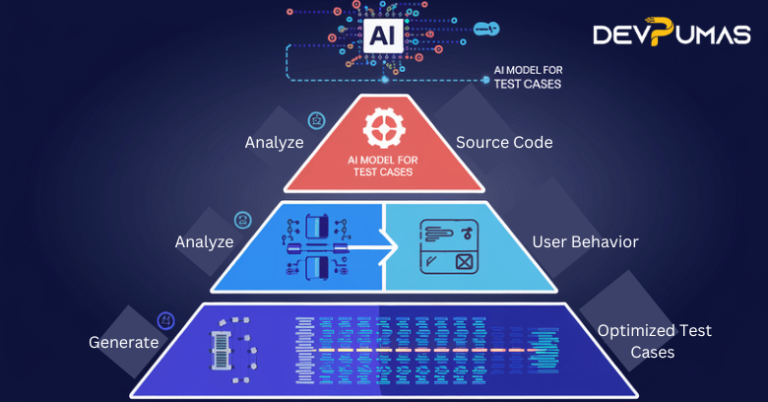Introduction
As software development cycles become increasingly rapid, the demand for efficient and effective quality assurance (QA) processes has never been higher. Traditional manual testing methods are often slow, costly, and prone to human error. To overcome these challenges, many organizations are turning to AI in software testing. By leveraging artificial intelligence (AI) and machine learning (ML), companies can automate QA processes, making them faster and more accurate. This not only speeds up the software development lifecycle but also improves the quality of the final product. In this article, we will explore how AI in software testing is revolutionizing QA, the key benefits it offers, and the tools and techniques that are driving this transformation.
The Evolution of Software Testing
Software testing has traditionally been a labor-intensive process involving manual test case creation, execution, and validation. This approach is not only time-consuming but also limits the scope of testing due to human constraints. As software systems grow in complexity, the need for a more robust, scalable, and efficient testing strategy becomes evident.
AI in software testing addresses these limitations by automating repetitive tasks, learning from past test executions, and predicting potential defects before they manifest. By integrating AI into the software testing lifecycle, QA teams can shift from a reactive approach to a proactive one, identifying and addressing issues earlier in the development process.
How AI is Transforming Software Testing
AI and ML are transforming software testing in several key ways, making QA processes more efficient and reliable:
1. Test Case Generation and Optimization
One of the primary applications of AI in software testing is the automated generation of test cases. AI algorithms can analyze the codebase, understand the functionality, and automatically generate test cases that cover a wide range of scenarios. This not only saves time but also ensures comprehensive test coverage, reducing the likelihood of undetected defects.
For example, machine learning models can learn from past defects and user behavior to prioritize test cases that are more likely to uncover critical issues. This helps in optimizing the testing process by focusing on areas of the application that pose the highest risk.

2. Test Execution and Automation
AI in software testing significantly enhances test execution by automating repetitive and mundane tasks. Test automation tools powered by AI can execute a large number of test cases across different environments and platforms simultaneously, providing faster feedback to developers.
Additionally, AI-driven automation frameworks can adapt to changes in the application, such as UI modifications or code refactoring, reducing the maintenance overhead associated with traditional test scripts. This adaptability ensures that the test suite remains robust and effective, even as the application evolves.
Example Use Case: An e-commerce platform can use AI-powered test automation to run end-to-end tests on their website, checking for issues in product search, checkout processes, and payment gateways across various devices and browsers.
3. Predictive Analytics and Defect Prediction
Predictive analytics is a powerful application of AI in software testing. By analyzing historical data from previous test cycles, AI models can predict potential defects in the current codebase. This allows QA teams to focus their efforts on high-risk areas, increasing the efficiency and effectiveness of the testing process.
For example, AI algorithms can identify patterns that frequently lead to defects, such as certain combinations of code changes or particular areas of the application that have a history of bugs. By predicting where defects are likely to occur, teams can proactively address issues before they impact the user experience.
4. Intelligent Test Maintenance
Traditional test automation scripts are often brittle and require frequent updates to stay relevant as the application changes. AI in software testing helps alleviate this issue through intelligent test maintenance. AI-powered tools can automatically detect changes in the application’s UI or logic and update the test scripts accordingly. This reduces the need for manual intervention and ensures that the test suite remains up-to-date with minimal effort.
Example Use Case: A financial services company could use AI-driven test maintenance tools to ensure that their trading platform’s automated tests remain functional and accurate, even as new features and updates are introduced.
5. Enhanced Debugging and Root Cause Analysis
AI in software testing is also making debugging and root cause analysis more efficient. Machine learning models can analyze test results and logs to identify the underlying cause of failures. This enables developers to quickly understand the source of the problem and implement fixes more effectively.
For example, if a test fails due to a specific database query error, an AI tool could analyze the logs, identify the query that caused the issue, and suggest potential fixes based on similar past issues. This accelerates the debugging process and reduces the time to resolution.
Benefits of AI in Software Testing
The integration of AI in software testing offers numerous benefits that enhance the overall quality and efficiency of the QA process:
1. Faster Time-to-Market
By automating repetitive tasks and optimizing the testing process, AI allows development teams to release software more quickly. This reduced time-to-market is critical in today’s competitive landscape, where businesses need to respond rapidly to market changes and user demands.
2. Improved Test Coverage and Accuracy
AI algorithms can analyze vast amounts of data and generate test cases that cover a wide range of scenarios, including edge cases that might be overlooked by human testers. This comprehensive coverage reduces the likelihood of defects making it to production and improves the overall quality of the software.
3. Reduced Human Error and Bias
Human testers can be prone to errors and biases, especially when performing repetitive tasks. AI in software testing mitigates these issues by consistently applying testing criteria and analyzing results without bias, ensuring a more objective and accurate assessment of the software.
4. Cost Savings
Automating testing processes with AI reduces the need for extensive manual testing, lowering labor costs and increasing productivity. Additionally, by identifying defects earlier in the development cycle, AI helps avoid costly fixes and rework down the line.
Key Tools and Technologies for AI in Software Testing
Several tools and technologies are driving the adoption of AI in software testing, enabling teams to enhance their QA processes:
1. AI-Powered Test Automation Tools
Tools like Testim, Functionize, and Applitools leverage AI to automate test case creation, execution, and maintenance. These platforms use machine learning to adapt to changes in the application, reducing maintenance overhead and ensuring robust test coverage.
2. Natural Language Processing (NLP) for Test Case Generation
NLP technologies are being used to convert human-written test cases into automated scripts. Tools like Test.ai and Mabl use NLP to interpret test cases written in plain language and generate automated scripts, making it easier for non-technical team members to contribute to the testing process.
3. Machine Learning for Defect Prediction
Machine learning models are being integrated into defect tracking systems to predict potential defects and guide testing efforts. Tools like SeaLights and Test.AI use historical data to identify patterns and predict where defects are likely to occur, allowing teams to focus their efforts on high-risk areas.
Implementing AI in Software Testing: Best Practices
To successfully integrate AI in software testing, organizations should consider the following best practices:
1. Start with a Clear Strategy
Before implementing AI, it’s essential to have a clear strategy that aligns with your organization’s goals. Identify specific areas within your testing process where AI can add the most value, such as automated test case generation or predictive defect analysis.
2. Invest in the Right Tools and Talent
Choose AI tools and platforms that best fit your organization’s needs and invest in training your QA team to effectively use these tools. Building a team with the right mix of skills, including data science and machine learning, is crucial for leveraging AI’s full potential.
3. Monitor and Evaluate AI Performance
Once AI is integrated into your testing processes, continuously monitor its performance to ensure it meets your expectations. Evaluate the impact of AI on testing speed, coverage, and accuracy, and make adjustments as needed.
4. Foster a Culture of Continuous Learning
AI technologies are constantly evolving, so fostering a culture of continuous learning within your QA team is essential. Encourage experimentation with new AI tools and techniques and stay updated with the latest advancements in the field.
Challenges of Integrating AI in Software Testing
Despite its benefits, integrating AI in software testing is not without challenges:
1. Data Quality and Availability
AI models require large amounts of high-quality data to function effectively. Incomplete or biased data can lead to inaccurate predictions and unreliable results. Ensuring data quality and availability is a critical step in implementing AI in testing.
2. Skill Gaps
There is often a skill gap in teams when it comes to understanding and leveraging AI technologies. Investing in training and hiring talent with the necessary skills is crucial for the successful integration of AI.
3. Resistance to Change
Like any new technology, AI can face resistance from teams accustomed to traditional testing practices. Overcoming this resistance requires clear communication of the benefits of AI and involving teams in the implementation process to ensure buy-in and collaboration.
4. Complexity and Maintenance
AI models can be complex to maintain, especially as systems evolve. Regular updates and monitoring are needed to ensure AI tools remain effective and continue to provide value.
The Future of AI in Software Testing
The future of AI in software testing looks promising, with continued advancements in AI technologies and growing adoption across industries. Here are some trends to watch for:
1. AI-Driven Self-Testing Systems
In the future, AI-powered systems could become self-testing, automatically identifying and fixing issues without human intervention. This would further enhance the resilience and reliability of software applications.
2. Advanced Predictive Capabilities
AI algorithms are becoming more sophisticated, allowing for even more accurate predictions of defects and performance bottlenecks. This will enable organizations to proactively address issues and optimize their testing processes.
3. Greater Integration with DevOps
AI will play a crucial role in integrating testing into the DevOps pipeline, ensuring that quality is maintained throughout the development lifecycle. AI-powered testing tools can automatically detect vulnerabilities and enforce testing policies, ensuring that testing is integrated seamlessly into the CI/CD pipeline.
Closure
AI in software testing is transforming the way organizations approach quality assurance, offering numerous benefits including faster time-to-market, improved test coverage, reduced human error, and cost savings. By automating repetitive tasks, predicting potential defects, and enhancing test maintenance, AI is enabling QA teams to deliver high-quality software more efficiently.
As AI technologies continue to evolve, their role in software testing will only become more prominent, driving further innovation and efficiency in QA processes. By embracing AI in software testing, organizations can stay ahead of the curve and deliver high-quality software faster and more reliably than ever before.



